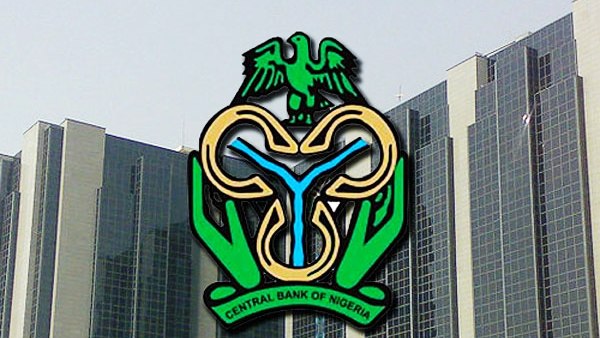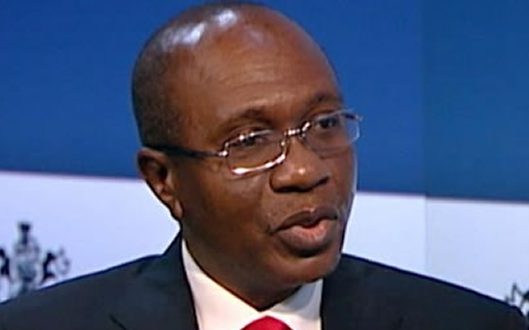As the 2019 elections approach and political maneuvering intensify, the Central Bank of Nigeria (CBN) has warned Deposit Money Banks (DMBs) to be careful not to violate the money laundering Act.
Banks that violate the money laundering Act in the guise of handling money for politicians the CBN warned, risk very stiff penalty. CBN governor Mr. Godwin Emefiele gave warning on Thursday at the end of the Monetary Policy Committee (MPC) meeting in Abuja.
Emefiele told journalists that the CBN’s position and warning was handed down to the DMBs Chief Executives at a recent meeting to intimate them of the dangers they may be exposed to as a result of the activities of politicians.
According to Emefiele, “On the 2019 elections, we had a meeting with the banks. We advised them to be very careful of money laundry issues. If they are caught, they will be heavily penalized. But banks have their rules and criteria; I don’t think banks will do anything that will violate the rules. When they go wrong, we will deal with them.”
On lending to politicians, he said, “of course, when you say banks lending to politicians, banks have their acceptance criteria and I don’t think that the banks will do that at this time. Everybody must have learnt their lessons and I believe that the right thing for everybody is to conduct their businesses carefully. But we as central bank, we are staying behind and watching to make sure that when things go wrong or about to go wrong we will deal with it appropriately.”
On the raging MTN repatriation issue, Emefiele disclosed that they are on the verge of making an announcement and pleaded with journalists to give all the parties some time to tidy up lose ends.
According to him, “We have held meetings with the MTN Group from South Africa and we are at the verge of announcing the resolution. I am very certain that we have reached the end of the road on this issue, and I will continue to say that the sanctity of the CCI issued by our banks remain sacrosanct.”
He stated that “No other company is being investigated on the issue of CCI, no other person is being investigated on the issue of CCI, this is an isolated matter and I will also say that we have foreign investors in Nigeria like Nigerian Breweries, Guiness and lots of foreign investors who have been carrying out their businesses for over fifty years and they have conducted their businesses in a way that we instructed and that is why there have not been issues.”
The issue of MTN be said “is being resolved and there is no need for anybody to be worried. This issue will be resolved equitably and amicably for the benefit of all.”
Elaborating further, Emefiele told journalists that “you must know that in issues like this, there are several things involved in this matter, such as whether the capital repatriation CCI was issued in 24 hours, and several others. Of course, these issues were dealt with over the period but the one that appears to have generated the kind of attention that we think it shouldn’t be generating is the issue of repatriation.”
He cautioned that “it is better for you to be slow in taking some of these decisions and when you take them you know that they are potent, and rational for those decisions. We were rational for the decisions we took because there were certain documents we expected to be submitted, those documents are now been submitted. We are in a process where we are saying this matter will be resolved.”
The monetary Policy Committee (MPC) of Central Bank of Nigeria (CBN) rose from its 264th meeting Thursday to announce the retention of the Monetary Policy Rate (MPR) at 14 percent along with all the other base rates. These include Asymmetry Corridor at +200-500 basis points around MPR, Cash Reserve Ratio (CRR) at 22.5 percent and Liquidity Ratio at 30 percent.
Reading the communique of the meeting, CBN Governor, Mr. Goodwin Emefiele said the decision to hold the rates was unanimously agreed upon by all the 11 members. According to him, “the decision to hold was also an expression of confidence in the direction of the economy which outlook is positive.”
Reviewing the economy in the last two months, the MPC lamented that “credit to the private sector grossly under-performed below the 2018 benchmark of 12.4 percent. The under performance of the monetary aggregate was of concern to the MPC, which impressed it on CBN to ensure credit delivery to the small and medium scale enterprises”.
Emefiele noted that “Improvement in productivity in the oil and non-oil sectors are also expected to drive output growth in the medium term. The committee however, acknowledged the downside risks to this outlook to include absence of fiscal buffers, low domestic credit and weak aggregate demand”.
The MPC also said improvement in security, improved harvest, as well as stable exchange rate are expected to moderate inflation. “Overall, the outlook for the economy remains positive with a growth projection of 1.75 percent in 2018.”
The committee however advised Nigerians to look out for increase in inflation rate in the coming months due to anticipated election spending, end of year spending, high cost of energy, flooding, farmers/herdsmen crisis. The MPC cautioned that reduction in inflation figures seen in October was unsustainable.
The MPC urged fiscal authorities to work towards containing these menaces and sustain implementation of the 2018 budget,as well as the Economic Recovery and Growth Plan (ERGP) of the Federal Government to ameliorate the supply side constraints.


